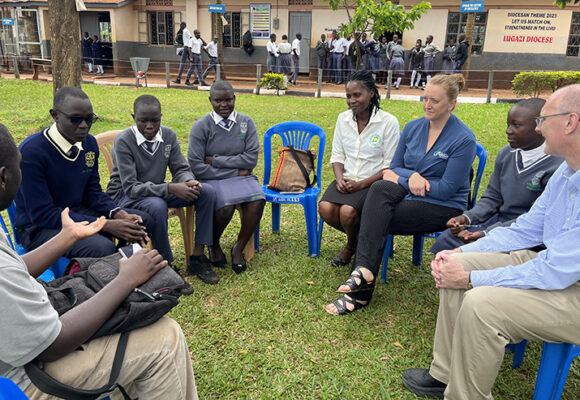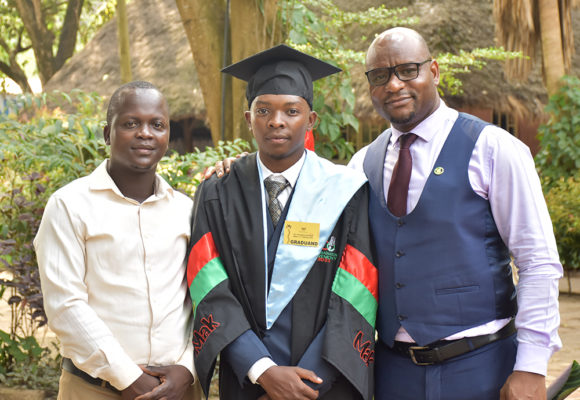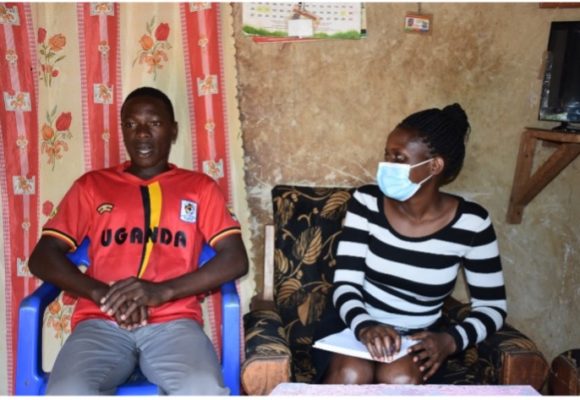The RTH program profoundly impacts the lives of the children it serves, offering the care and resources essential for a dignified and fulfilling life.
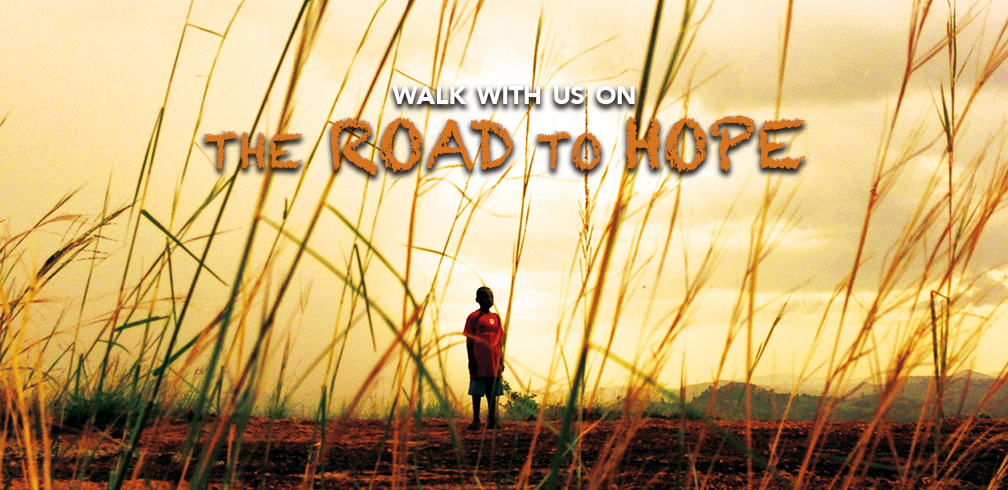
Changing “No parents. No future. No hope”
into a future full of promise.
The Road to Hope program provides financial and social support for vulnerable children who have lost one or both parents and are unable to continue their education. Most of the children in the program provided care for their dying parent(s) or are the younger siblings of those who provided care. Palliative care workers identify vulnerable child caregivers for the program. It is a joint initiative between the Palliative Care Association of Uganda (PCAU) and its US partners, Center for Hospice Care/Hospice Foundation (CHC/HF).
Protection for Vulnerable Children
In Uganda, like much of Sub-Saharan Africa, children become their parents’ primary caregiver if a parent is struck with a life-threatening condition. With no source of family income, the child typically quits school to earn whatever living can be found. Additional responsibilities often include making sure the household has food, cleaning/bathing the parent and acquiring morphine or other pain-relieving drugs from a palliative care organization. After the parent(s) die, the child caregiver is usually taken in by members of the extended family. That extended family is often unable to provide more than the bare minimum of food, clothing and schooling for the orphaned children.
In addition to being orphaned, these children are frequently vulnerable in other ways. Some are ill themselves and in need of physical and psychosocial care. The Road to Hope program was created to assist vulnerable child caregivers by providing educational, psychological, social, emotional and nutritional support.
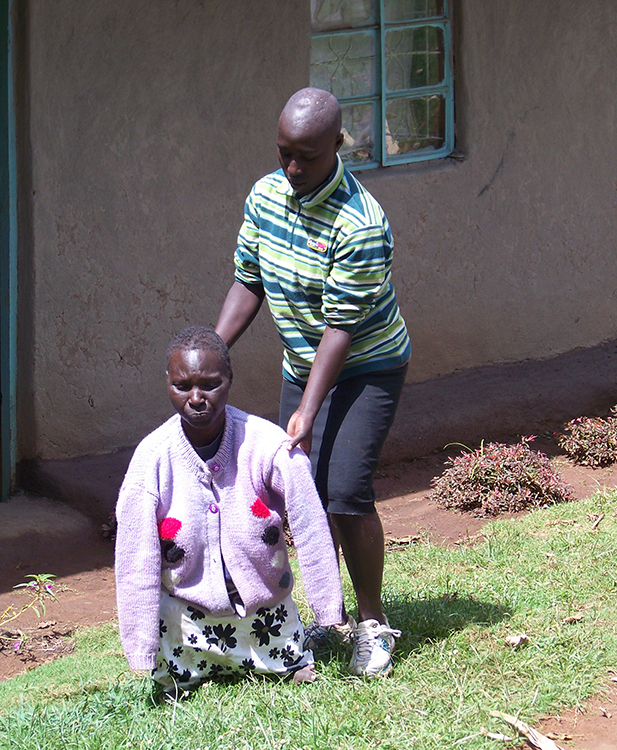
The Road to Hope and COVID-19
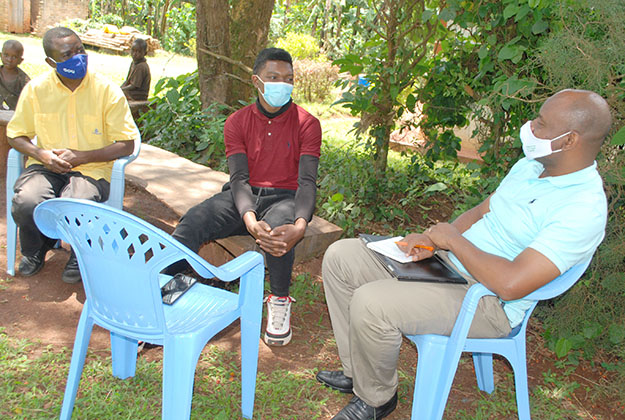
Mark at Tonny Agondeze′s home in Kagadi
With schools in Uganda shut down due to the COVID-19 pandemic, children on the Road to Hope program face even more daunting circumstances than normal. Families that already had difficulties in securing enough food now have an increased demand with schools not providing meals for the children. While Uganda’s Ministry of Education and Sports is keeping children engaged with their studies through radio and television broadcasts of tutoring sessions and home-schooling packages for each class level in the national newspapers, families struggle with access to electricity and being able to afford the newspapers. PCAU continues to keep in touch with the children’s guardians to help ensure that the children are receiving at least one meal a day and have access to the educational materials they need. If you would like to help children of the Road to Hope program during the pandemic, your gift will be greatly appreciated!
Stories from the Road to Hope
Road to Hope Milestones
Two young adults on the Road to Hope (RTH) program, Stephen and Tonny, recently graduated from university.
Sponsor Spotlight – Judy Porter and Gary Cromer
After viewing the film Road to Hope, Judy and Gary decided to become sponsors. They first sponsored Morris in secondary school and in vocational school where he studies motor vehicle mechanics.
Impact of the Long School Break on Road to Hope Children
As school resumed in January, a number of Road to Hope (RTH) children decided to pursue vocational education to focus on a trade.


